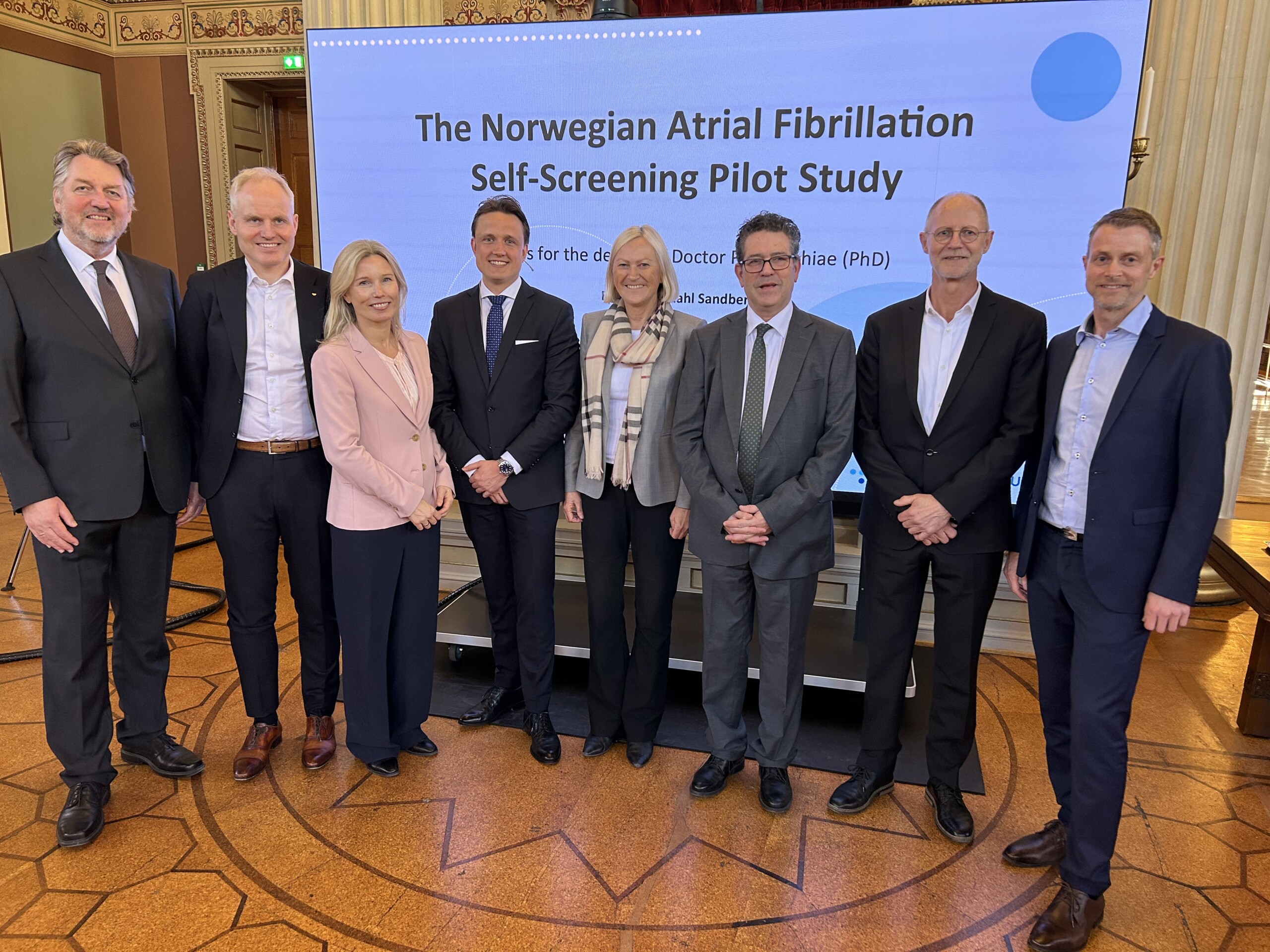
The usefulness of ECG247 has been further confirmed through a medical doctorate at the University of Oslo.
Doctor at the cardiology department in Arendal Edvard L Sandberg has investigated whether ECG247 can be used to detect atrial fibrillation before the condition leads to serious illness. Through clinical studies, he and the rest of the research group at Sørlandet Hospital and Oslo University Hospital have compared ECG247 with traditional hospital equipment and investigated whether it is possible to conduct atrial fibrillation screening by sending the sensor to people’s homes in the mail. The results show that ECG247 is better than previous equipment and that most people are able to perform a test at home themselves. This week, Sandberg defended the results in a public doctoral dissertation at the University of Oslo. A doctorate (PhD) is the highest academic degree in Norway.
The results from the studies were so positive that the research group has previously been awarded almost 20 million to conduct a significantly larger research project to investigate whether it is possible to reduce the incidence of stroke. This study, NORSCREEN, will include 35,000 participants and is already well underway. The study uses ECG247.
This is an important milestone for ECG247. The studies using the system show that the technology works. Patients have good user experiences, the healthcare system saves resources and the result may be fewer cases of stroke and heart failure.
Image: from left: Professor Arnljot Tveit (opponent), University of Oslo, Department Head Ole Christian Mjølstad (opponent), St Olavs Hospital, Associate Professor Emma Svennberg (opponent), Karolinska Institutet, Stockholm, PhD candidate Edvard L Sandberg, Sørlandet Hospital Arendal, Professor Sigrun Halvorsen (supervisor), University of Oslo, Professor Dan Atar (supervisor), University of Oslo, Professor Henrik Holmstrøm (disputation leader), University of Oslo, Senior Consultant Jarle Jortveit (main supervisor), Sørlandet Hospital Arendal



